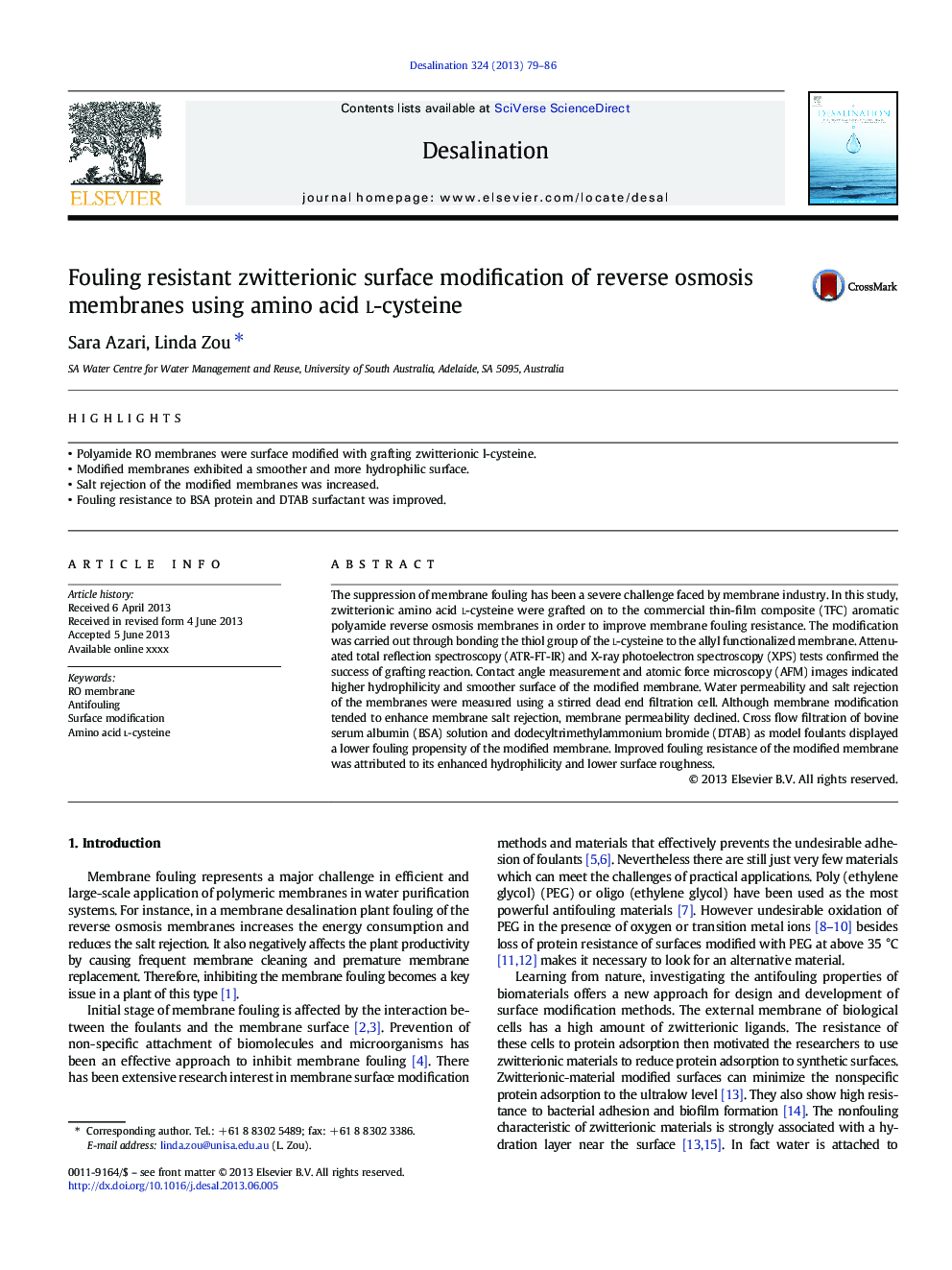| Article ID | Journal | Published Year | Pages | File Type |
|---|---|---|---|---|
| 7008661 | Desalination | 2013 | 8 Pages |
Abstract
The suppression of membrane fouling has been a severe challenge faced by membrane industry. In this study, zwitterionic amino acid l-cysteine were grafted on to the commercial thin-film composite (TFC) aromatic polyamide reverse osmosis membranes in order to improve membrane fouling resistance. The modification was carried out through bonding the thiol group of the l-cysteine to the allyl functionalized membrane. Attenuated total reflection spectroscopy (ATR-FT-IR) and X-ray photoelectron spectroscopy (XPS) tests confirmed the success of grafting reaction. Contact angle measurement and atomic force microscopy (AFM) images indicated higher hydrophilicity and smoother surface of the modified membrane. Water permeability and salt rejection of the membranes were measured using a stirred dead end filtration cell. Although membrane modification tended to enhance membrane salt rejection, membrane permeability declined. Cross flow filtration of bovine serum albumin (BSA) solution and dodecyltrimethylammonium bromide (DTAB) as model foulants displayed a lower fouling propensity of the modified membrane. Improved fouling resistance of the modified membrane was attributed to its enhanced hydrophilicity and lower surface roughness.
Related Topics
Physical Sciences and Engineering
Chemical Engineering
Filtration and Separation
Authors
Sara Azari, Linda Zou,
